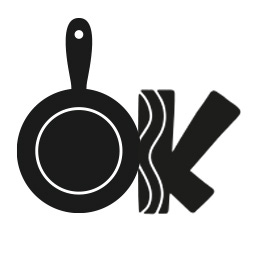I’m on the edge. My brain has turned to mush. But the orders keep coming.
I am on the edge.
It’s touch and go whether I hold it together.
Or fall into whatever is down there on the other side, is it hysteria? Will I throw my hands up in the air, and scream ‘I quit?’ or will it be much more embarrassing than that, will I cry?
There is too much to do. Too much to process.
And yet, there is more. Another order comes in. And another. And ….
And as I flit around the kitchen, like a quail without a head, I wonder if the other chefs notice?
It’s Day 13 of my self-imposed challenge, a 100-Day Chef Stage and I’m mid-way through a kitchen service at El Monastrell, a Michelin star restaurant in Alicante.
Just a normal service. Busy yes. But nothing out of the ordinary; this is what these chefs face day in day out.
And in part, it’s what draws me towards this work; a moth to a flame.
This excitement, pressure, the unknown, the challenge, the push.
Normally I zone into it. Embrace it. Roll with it. I am calm, alert, focussed. But today I’m all over the shop.
I think every service goes through three distinct stages; the first 30 minutes is like the calm before the storm, then all hell breaks loose for about an hour, then it winds down and you wonder what all the fuss was about.
At the start you are just gathering, at the end your are just plating, in the middle you are doing both - and that’s when it just feels like you might just lose it.
The head chef, like an conductor keeps an overview of everything, timing the orders, calling them out to Chef de Partie, who will in turn send orders out to the Chefs.
Everything comes together on the pass.
Different orders from different stations, simultaneously, warm, plated and ready to go out as one order to the table.
This brigade system of organisation has been working since the days of Auguste Escoffier. Every chef has their own jobs to do, and the kitchen works at maximum efficiency.
When it comes together, it’s fantastic to see. Team work at its finest.
More customers are now coming in, and so too are the orders. Everyone is speeding up.
“Dos Largos! Seis Largos! Tres Largos!”shouts Federico, the head chef.
The three tasting menus all come in at once. They implicate the whole kitchen.
Chefs move to collect ingredients, turn on burners, grab pans.
For me it means a series of tasks: I must weigh and dice the tuna; heat the leek soup; whizz over to the other side and grab the frozen nitro-parsley shots; return before the soup has boiled over; weigh 65g of rice per person for the Quail Arroz (paella); add stock and spices to three paella pans; slice four quail breasts; and begin the hollandaise for the Pedro Gallo (fish) dish.
Half way through the rice weighing, the second tuna order rings out.
“Marcha 6 atún!”
Shit! That’s me.
And this second call is telling me to bring six finished tuna dishes to the pass. Now. Right now.
I’m beginning to lag behind.
Back to weighing the rice. But where was I with that? Was it six lots of 30g? Or three lots of 60g? Is that the Hollandaise splitting?
Quantities begin to mess up in my head, the Spanish jumbles.
And so it goes on. More commands come in …. six of something, four of whatever, two of who cares!
My brain turns to mush. I can’t think. What’s more I am having immense difficulty multiplying 30 by 6.
In time, as I work in more kitchens, I’ll recognise this moment for what it is.
Overload.
What I’m being asked to do, is simply too much.
I’ve reached saturation point.
I can go no faster (without making mistakes, which will makes you slower in the long run).
Cognitive overload. It happens to in sports too. Especially during competition, with information being shouted from the sidelines, tons of split-second tactical decisions to make, and bags of external pressure to boot.
As you reach the point of overwhelm, the real problem is mistakes. You become less and less able to process decisions, and more and more likely to make errors.
At this stage, the only way I find to return to some sort of stability feels counter-intuitive but it is to: Slow Down.
Everything inside of you, and everyone outside is screaming for you to go faster.
But the solution is to do the opposite.
Slow down. Focus on one thing.
Just focus one one thing. Then the next thing. Then the next.
And, as I struggle with rice weighing and simple maths, I hold onto one thought:
Slow down. Focus on one thing.
Somehow I get the tuna out. Maybe the right amount of rice goes into the paella, maybe not.
It’s not a pleasant hour for me, as mentally I wobble back and forth along the edge, but I hold it together.
But eventually, the last order goes out.
And suddenly we are cleaning down, and I feel my brain cleaning down too, ticking and whirring, and back into action as the load lessens and I can think normally again.
Sign up for more! Add your email.
Add your email to get the next episode sent straight to your inbox.
In the next episode, things get crunchy. I learn how to make soccarrat, that delicious layer of caramelised rice in a paella.
For the next 100 Days I’m staging in Spanish Michelin star restaurants. Join me on the journey! Click the red button and add your email when prompted.







Fantastic writing Nik! I could really feel the pressure you were under!! The English department at Edgbarrow would've been so proud! 😉😊
Looking forward to the next installment. Sxx 😋😘